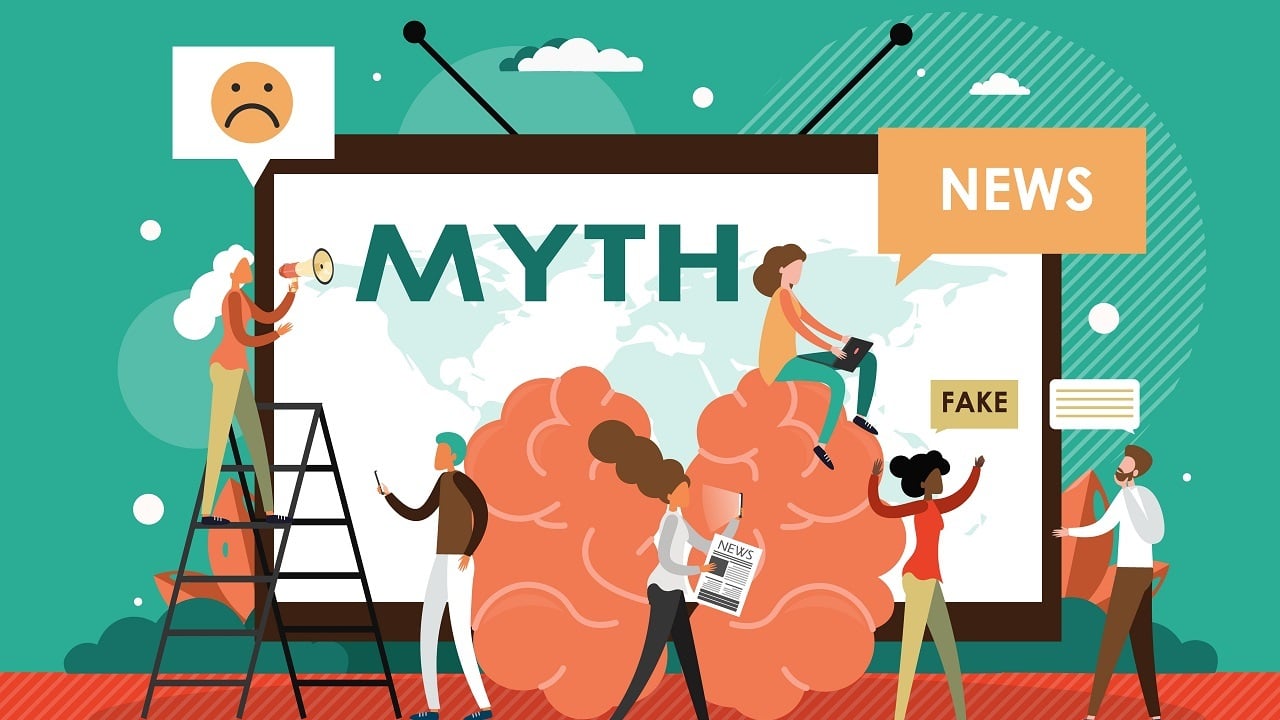Understanding ADHD: Avoiding TikTok-Fueled Misinformation

Table of Contents
The Reality of ADHD: Dispelling Common Myths
Many misconceptions surrounding ADHD circulate online, often fueled by anecdotal evidence and unqualified opinions. Let's address some of the most prevalent myths:
Myth 1: ADHD is just "inattentiveness."
While inattentiveness is a key symptom of ADHD, it's a significant oversimplification to define the condition solely by this aspect. ADHD encompasses a broader spectrum of symptoms, categorized into three primary subtypes:
- Inattentive Type: Primarily characterized by difficulty focusing, staying organized, and following instructions.
- Hyperactive-Impulsive Type: Primarily characterized by excessive restlessness, impulsivity, and difficulty controlling behavior.
- Combined Type: Individuals exhibiting symptoms of both inattention and hyperactivity-impulsivity.
It's crucial to understand that ADHD symptoms vary greatly among individuals, changing across different life stages and contexts. There's no single presentation of ADHD, highlighting the need for accurate diagnosis and personalized support. Understanding the nuances of ADHD subtypes and ADHD presentation is essential for effective management.
Myth 2: ADHD is only a childhood disorder.
Contrary to this widespread belief, ADHD is not limited to childhood. Many individuals continue to experience ADHD symptoms in adults, though the presentation may differ. Adult ADHD often manifests as:
- Challenges in maintaining employment due to difficulty focusing and organizing.
- Difficulties in sustaining relationships due to impulsivity and emotional dysregulation.
- Financial instability resulting from poor organization and impulsive spending.
Recognizing that ADHD in adults requires different management strategies than childhood ADHD is critical. Understanding the unique adult ADHD challenges allows for more effective support and treatment.
Myth 3: Sugar causes ADHD.
This is a persistent myth lacking scientific backing. While diet can certainly impact behavior and energy levels, there's no conclusive evidence linking sugar consumption directly to the development or exacerbation of ADHD. The scientific consensus points to a complex interplay of factors in the etiology of ADHD, including:
- Genetic predisposition: A strong hereditary component plays a crucial role.
- Neurobiological factors: Imbalances in brain neurotransmitters are implicated.
Focusing on evidence-based ADHD causes like ADHD genetics and ADHD neurobiology is essential for understanding the condition accurately.
Identifying Reliable Information Sources about ADHD
Navigating the sea of information online can be overwhelming. It is crucial to rely on credible sources when learning about ADHD:
Seeking Professional Help
Accurate diagnosis and treatment are paramount. Never attempt self-diagnosis. Seek help from qualified healthcare professionals such as:
- Psychiatrists
- Psychologists
- Neurologists
These professionals can conduct a comprehensive ADHD assessment, offering a thorough evaluation of your symptoms and guiding you towards appropriate treatment. Proper ADHD diagnosis is the cornerstone of effective management. ADHD treatment options vary and should be tailored to individual needs. Finding the right ADHD professional is a vital step.
Reputable Online Resources
Complement professional guidance with information from established organizations:
- CHADD (Children and Adults with Attention-Deficit/Hyperactivity Disorder):
- ADDitude Magazine:
- National Institute of Mental Health (NIMH):
These sites provide reliable ADHD resources and reliable ADHD information. Referencing these and similar reputable ADHD websites will help you navigate the complexities of ADHD effectively.
The Dangers of Misinformation on TikTok and Other Social Media
Social media platforms, particularly TikTok, can be breeding grounds for misinformation about ADHD:
Unverified Information and Self-Diagnosis
Relying on unqualified sources for information and attempting ADHD self-diagnosis based on online trends carries significant risks:
- Delayed or inappropriate treatment.
- Unnecessary anxiety and distress.
- Misunderstanding of the condition and its management.
Always prioritize professional guidance to avoid the negative consequences of ADHD misinformation. Remember, professional guidance is crucial for accurate ADHD diagnosis.
Harmful Trends and Challenges
Several potentially harmful trends are circulating online, promoting ineffective or even dangerous "treatments" or "ADHD hacks":
- Promoting unproven supplements or remedies.
- Advocating for potentially risky lifestyle changes without professional supervision.
These misleading ADHD trends and ADHD hacks are not only ineffective but can also be harmful. Be wary of ADHD misinformation online and stick to evidence-based approaches.
Conclusion
Understanding ADHD requires separating fact from fiction. This article highlights the importance of debunking common myths, emphasizing the need for professional diagnosis and treatment, and cautioning against the dangers of misinformation spread through social media platforms like TikTok. Learning about ADHD from reputable sources and consulting a healthcare professional if you suspect you or a loved one may have ADHD is crucial for effective management and improved quality of life. By actively seeking accurate information and professional support, you can effectively navigate the challenges of ADHD and work towards managing ADHD effectively. Start by exploring reputable resources and scheduling an appointment with a qualified professional to discuss your concerns and explore appropriate understanding ADHD better.

Featured Posts
-
 Wildfire Betting In Los Angeles A Reflection Of Our Times
Apr 29, 2025
Wildfire Betting In Los Angeles A Reflection Of Our Times
Apr 29, 2025 -
 Georgian Man Arrested For Allegedly Setting Wife On Fire In Germany
Apr 29, 2025
Georgian Man Arrested For Allegedly Setting Wife On Fire In Germany
Apr 29, 2025 -
 Assessing The Impact Of Trumps China Tariffs On The Us Economy
Apr 29, 2025
Assessing The Impact Of Trumps China Tariffs On The Us Economy
Apr 29, 2025 -
 Trumps Plan A National Registry Of Sanctuary Jurisdictions
Apr 29, 2025
Trumps Plan A National Registry Of Sanctuary Jurisdictions
Apr 29, 2025 -
 The Definitive Guide To The Countrys Rising Business Areas
Apr 29, 2025
The Definitive Guide To The Countrys Rising Business Areas
Apr 29, 2025
Latest Posts
-
 Chantal Ladesou Ses Plus Grands Roles Au Theatre Et Au Cinema
May 12, 2025
Chantal Ladesou Ses Plus Grands Roles Au Theatre Et Au Cinema
May 12, 2025 -
 Celtics Guard Opts Out Of Nba Award Race
May 12, 2025
Celtics Guard Opts Out Of Nba Award Race
May 12, 2025 -
 Chantal Ladesou Biographie Et Carriere D Une Grande Comedienne
May 12, 2025
Chantal Ladesou Biographie Et Carriere D Une Grande Comedienne
May 12, 2025 -
 Boston Celtics Guard Passes On Nba Award Campaign
May 12, 2025
Boston Celtics Guard Passes On Nba Award Campaign
May 12, 2025 -
 Chantal Ladesou Ses Propos Controverses Sur Ines Reg Font Polemique
May 12, 2025
Chantal Ladesou Ses Propos Controverses Sur Ines Reg Font Polemique
May 12, 2025
